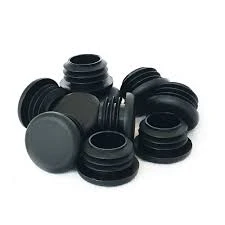Mobile:+86-311-808-126-83
Email:info@ydcastings.com
flexible impeller
Understanding Flexible Impellers A Comprehensive Overview
Flexible impellers are a crucial component in various pumping applications, particularly in fluid transfer and circulation systems. Their unique design and operational characteristics have made them increasingly popular in industries ranging from food and beverage processing to wastewater management. This article explores the fundamentals of flexible impellers, their applications, advantages, and maintenance considerations.
What is a Flexible Impeller?
A flexible impeller is a type of rotary pump design characterized by its flexible vanes or blades that can adjust their shape to accommodate the fluid flow. Unlike rigid impellers, which can only handle specific flow rates and pressures, flexible impellers can adapt dynamically, making them suitable for handling a wide variety of fluids, including those that are viscous, abrasive, or contain solids.
The core working principle of a flexible impeller involves the rotation of the impeller within a housing, creating a vacuum that draws fluid into the pump. As the impeller turns, the flexible vanes move away from the housing wall, allowing the fluid to enter the discharge side effectively. This design minimizes turbulence and shear, which is especially beneficial when pumping delicate liquids.
Applications of Flexible Impellers
Flexible impellers can be found in numerous applications, owing to their versatility. In the food and beverage industry, these pumps are often employed to handle viscous products like sauces, syrups, and purees. Their gentle pumping action ensures that the product's integrity is maintained without altering its texture or quality.
In wastewater management, flexible impaders are crucial in transferring sewage and sludge efficiently. Their ability to handle solids and thick fluids makes them indispensable in various treatment processes. Additionally, they are frequently used in chemical processing, pharmaceuticals, and even in marine applications for bilge pumping.
Advantages of Flexible Impellers
flexible impeller

One of the primary advantages of flexible impellers is their ability to handle a wide range of fluid types and viscosities. This adaptability allows for greater flexibility in application compared to traditional pumps. Furthermore, flexible impellers operate with lower pulsation rates, resulting in smoother flow and minimal cavitation, which can damage other types of pumps.
Another significant benefit is their maintenance-friendly design. Flexible impellers generally have fewer moving parts, which reduces wear and tear and extends the pump's lifespan. When maintenance is necessary, replacing the impeller is typically straightforward, leading to less downtime and cost-effective repairs.
Additionally, flexible impellers are often made from materials that resist corrosion and wear, making them suitable for handling aggressive chemicals and abrasive fluids. This durability ensures reliable performance under demanding conditions.
Maintenance Considerations
To ensure the longevity and optimal performance of flexible impellers, routine maintenance is essential. Regular inspections are necessary to check for wear on the impeller and housing. Signs of wear may include reduced flow rates or increased noise levels during operation.
It's also important to ensure that the pump is operated within its specified limits in terms of temperature, pressure, and viscosity. Exceeding these limits can lead to premature failure of the impeller. Lubrication and cleaning the pump components periodically will minimize operational issues and prolong the system's overall lifespan.
Conclusion
Flexible impellers play a vital role in the pumping industry, providing efficient, adaptable, and reliable solutions for a variety of fluid transfer needs. Their unique characteristics make them an invaluable asset across multiple sectors, ensuring that businesses can operate smoothly while maintaining product integrity. Understanding the operation, benefits, and maintenance of flexible impellers is essential for maximizing their potential in any application.
-
Why Should You Invest in Superior Pump Castings for Your Equipment?NewsJun.09,2025
-
Unlock Performance Potential with Stainless Impellers and Aluminum End CapsNewsJun.09,2025
-
Revolutionize Your Machinery with Superior Cast Iron and Aluminum ComponentsNewsJun.09,2025
-
Revolutionize Fluid Dynamics with Premium Pump ComponentsNewsJun.09,2025
-
Optimizing Industrial Systems with Essential Valve ComponentsNewsJun.09,2025
-
Elevate Grid Efficiency with High-Precision Power CastingsNewsJun.09,2025











